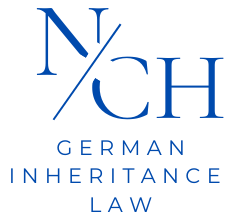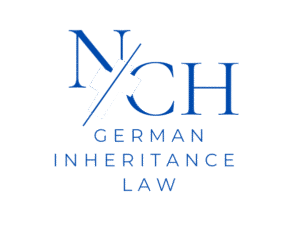Intestate Succession: Who Inherits When There’s No Will?
If a person dies in Germany without leaving a valid will or inheritance contract, statutory succession applies automatically. This means that the law—not the deceased—determines who inherits, in what order, and in what shares. For international families, especially those with property or heirs in both Germany and the U.S., the rules can produce unexpected results: distant relatives suddenly appear as heirs, spouses must share with children or parents, and cross-border administration becomes a logistical and legal challenge.
Intestate succession is not a neutral process—it follows strict hierarchies. Children inherit first, then parents and siblings, then grandparents and their descendants. The surviving spouse is always an heir, but their share depends heavily on the marital property regime and the presence of other relatives. Without legal guidance, heirs may face blocked bank accounts, frozen real estate, and conflicts with co-heirs scattered across several countries. Understanding the rules is the first step to securing your inheritance.
- No will? No Plan? German Law Decides.
- Children and Grandchildren – First-Order Heirs
- The Surviving Spouse’s Share
- Second and Third-Order Relatives
- Special Cases: Divorce, Life Partnerships, and Exclusions
- Why Acting Quickly Matters
- Common Problems in Intestate Succession
- Benefits of Having a Will
- Frequently Asked Questions (FAQs)
- 5 Top Tipps
- Conclusion
Children and Grandchildren – First-Order Heirs
Descendants of the deceased are the heirs of the first order. All children inherit in equal shares, regardless of whether they were born in or out of wedlock or adopted. If a child has already died, their children (the deceased’s grandchildren) inherit in their place by way of representation. Great-grandchildren and further descendants only inherit if their parent in the line of succession has predeceased the testator. This principle ensures that the estate always passes down the bloodline, generation by generation.
The surviving spouse is always an heir, but the share depends on the marital property regime:
- Community of accrued gains (Zugewinngemeinschaft): This is the default regime. The spouse inherits one-half of the estate if there are children. If there are no children but parents or siblings, the spouse inherits three-quarters. If no close relatives exist, the spouse inherits everything.
- Separation of property (Gütertrennung): The spouse’s share is equal to that of the children. With one child, the spouse receives half; with two children, one-third; with three or more children, one-quarter.
- Community of property (Gütergemeinschaft): The spouse already owns half of the joint property and inherits a share of the deceased’s half. This regime is rare and requires special legal handling.
In addition to these shares, the surviving spouse has a right to the Voraus—household goods and wedding gifts remain with them regardless of their inheritance share. If the couple shared a family home, special use and occupancy rights may also apply.
Step 1
Step 2
Get a Legal Roadmap
Step 3
We Handle Everything
Second and Third-Order Relatives
If there are no children or grandchildren, heirs of the second order inherit. These include the deceased’s parents and their descendants—siblings, nieces, and nephews. If both parents survive, they inherit equally. If one parent has predeceased, their share passes to the siblings of the deceased.
If no heirs of the first or second order exist, the third order inherits: grandparents, uncles and aunts, and cousins. This hierarchy continues through further orders, extending to great-grandparents and beyond, until no relatives remain. In the absence of any heirs, the estate falls to the German state.
Special Cases: Divorce, Life Partnerships, and Exclusions
Spousal inheritance rights cease if the marriage is legally dissolved. Even during pending divorce proceedings, if the petition for divorce has been filed and the requirements for divorce were met, inheritance rights may already be excluded. Registered life partners have the same inheritance rights as spouses under German law. Heirs can also be excluded due to unworthiness —for example, in cases of severe misconduct toward the deceased.
Why Acting Quickly Matters
German probate courts require formal proof of heirship (Erbschein), and applications can take months to process. Heirs living abroad must often act within strict deadlines: disclaiming an unwanted inheritance, for example, must be done within six weeks of notification (extended to six months for heirs living outside Germany). Delays can cause severe financial consequences: ongoing property expenses, market changes, or decisions by co-heirs that affect your share.
Common Problems in Intestate Succession
- Community of Heirs (Erbengemeinschaft): Multiple heirs automatically form a community that must act unanimously, often leading to stalemates.
- Asset Lock-Up: Real estate cannot be sold, and bank accounts cannot be accessed, without the cooperation of all heirs.
- Unknown or Distant Heirs: Tracing heirs abroad can take months.
- Tax Surprises: Even statutory heirs may face inheritance tax burdens, with allowances varying by relationship.
- Cross-Border Complexity: U.S.-based heirs must comply with German probate law and often need professional representation to navigate the process.
Benefits of Having a Will
Statutory succession provides a safety net, but it rarely matches individual wishes. A will allows you to:
- Define heirs freely and avoid unwanted heir communities
- Provide targeted gifts and legacies (Vermächtnisse)
- Reduce compulsory share claims through planning
- Optimize inheritance tax and coordinate U.S.–German obligations
- Ensure clarity in patchwork families and international estates
Frequently Asked Questions (FAQs)
5 Top Tipps
- Confirm your heirship quickly through German probate court.
- Watch deadlines—especially for disclaiming an inheritance.
- Anticipate disputes in heir communities and plan mediation or buyouts.
- Secure tax advice early to minimize exposure.
- Use local legal representation to act on your behalf in Germany.
Conclusion
Statutory succession in Germany is a rigid hierarchy that often produces unexpected heirs and complicated inheritance shares—especially in cross-border families. For U.S. heirs, the process can seem overwhelming: foreign probate courts, unknown relatives, and strict tax rules. With professional guidance, however, you can secure your rightful inheritance efficiently and without the need to set foot in Germany.
German Attorney Nicola Casper-Hoesl helps U.S.-based heirs assert their rights under German intestacy rules, obtain proof of heirship, and resolve cross-border inheritance issues with clarity and precision.
Provided expert legal guidance through a very complex inheritance situation involving German banks, courts, and tax authorities. Extremely detailed, diligent, and knowledgeable. I would not have been able to resolve all the legal issues without her help. Very highly recommended!
During a very challenging time both emotionally and logistically, I could always count on Nicola. She expertly guided me through the ins and outs of German inheritance law. It was a pleasure to work with her.
Nicola is an exceptional attorney with extensive knowledge in German inheritance law. Navigating international legal matters can be frustrating and complex, but Nicola made the process smooth and stress-free. Her professionalism along with clear communication were invaluable throughout the entire ordeal.
If you are in need of a knowledgeable, reliable, and supportive lawyer for inheritance matters involving Germany, Nicola is the best choice! I highly recommend her.
Nicola helped our family recover a €250k inheritance stuck in German probate—without us ever leaving California. Her team handled everything in 8 months.
Nicola is very knowledgeable about German /International Law and listens to her clients’ needs during challenging times in their lives.
She is very kind , responsive and efficient in her email & phone conversations. I was delighted to work with her in solving my niece’s case.
I highly recommend Nicola if someone needs any law advice about Inheritance or German/International law cases.

